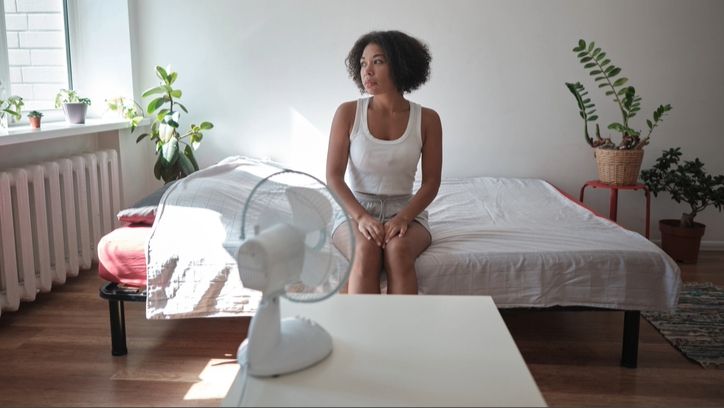
Everybody loves the summer — except of course when they're lying awake in bed in the middle of the night, unable to drop off in the seasonal heat.
Summer can be a literal hotspot for insomnia, and while rising temperatures are a major factor in this, there are other reasons why you may not be catching the ZZZs you need in the summer months.
Sadly not even the best mattress can guarantee uninterrupted sleep in the summer, and while upgrading to one of the best cooling mattresses can make a difference, there are more factors than heat to consider when you're trying to combat summer insomnia.
To help you get your slumber back on track for the rest of the summer, here are the top five reasons why you're probably being kept awake at night — and what you can do to improve matters. Let's get started!
5 reasons why you can't sleep in the summer, and what to do about them
1. Warmer temperatures
There's no getting away from the fact that hotter nights mean worse sleep. A comprehensive 2022 study examined data from sleep-tracking wristbands across 68 countries worldwide, cross-referencing with local meteorological data, and found that the hotter it gets, the longer it takes you to get to sleep.
Your bedroom temperature is a major factor in how well you sleep, with a 2020 study concluding that 65 to 70°F (18 to 21°C) is the ideal temperature range for comfortable sleep, which explains why summer nights can be so hard to sleep through.
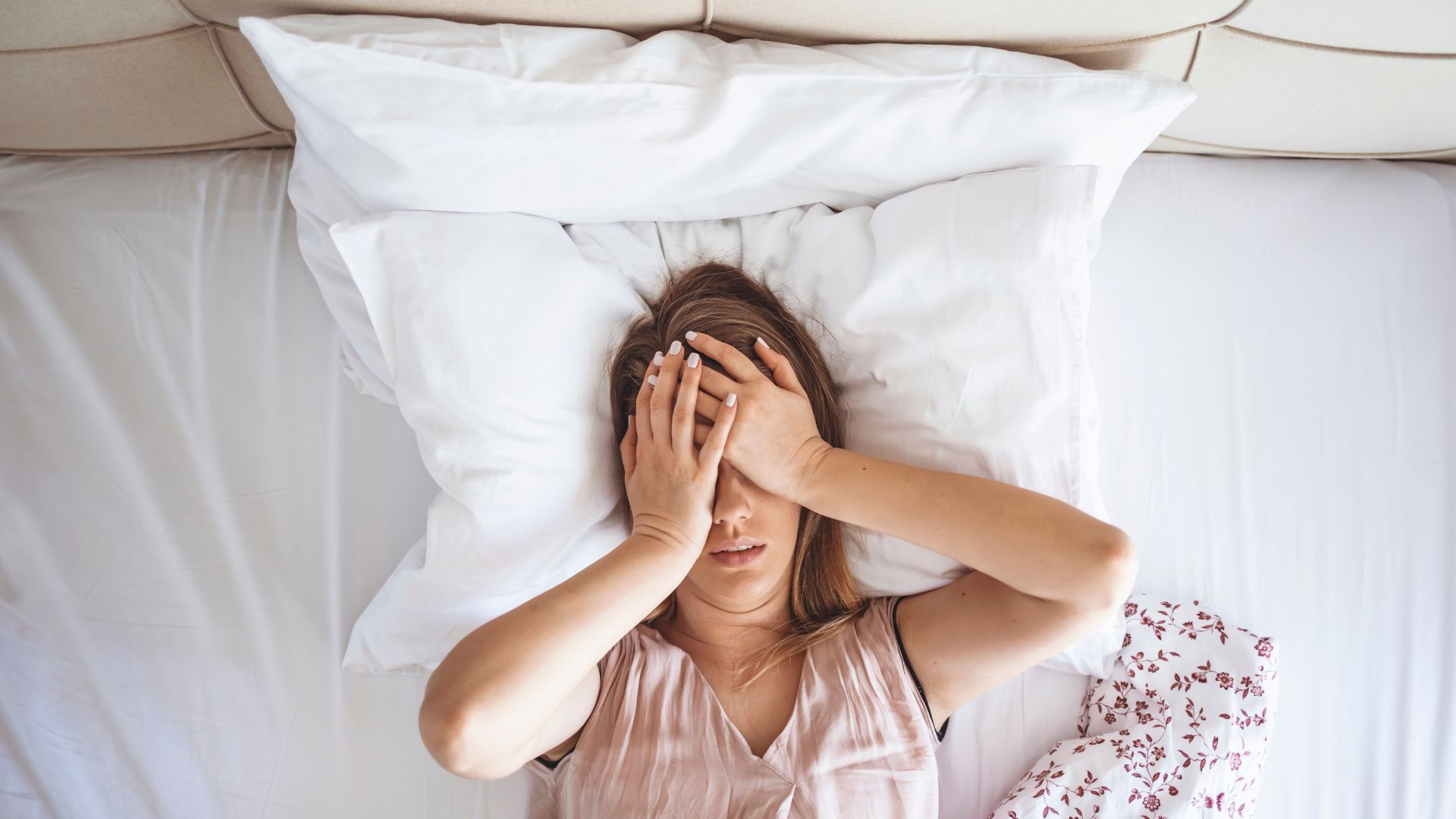
What to do about it: There are plenty of things you can do to bring temperatures down in your bedroom to achieve better sleep.
A cooling mattress might seem the obvious solution, but less extreme measures include keeping your bedroom cool and dark during the daytime so that heat can't build up – the 'caveman method' is an effective technique – or simply investing in some cooling bedding made with lower thread count fabric and natural materials.
Find more tips in our guide to how to sleep cool during a heatwave.
2. Longer daylight hours
Longer days and lighter evenings are generally a lovely thing, but all that daylight can have an impact on when you fall asleep.
Daylight inhibits the production of melatonin – the sleepy hormone – which means that during the longest days of the year you'll find it harder to go to sleep at your normal bedtime, and you'll likely wake up earlier than usual too, robbing you of sleep at both ends of the day.
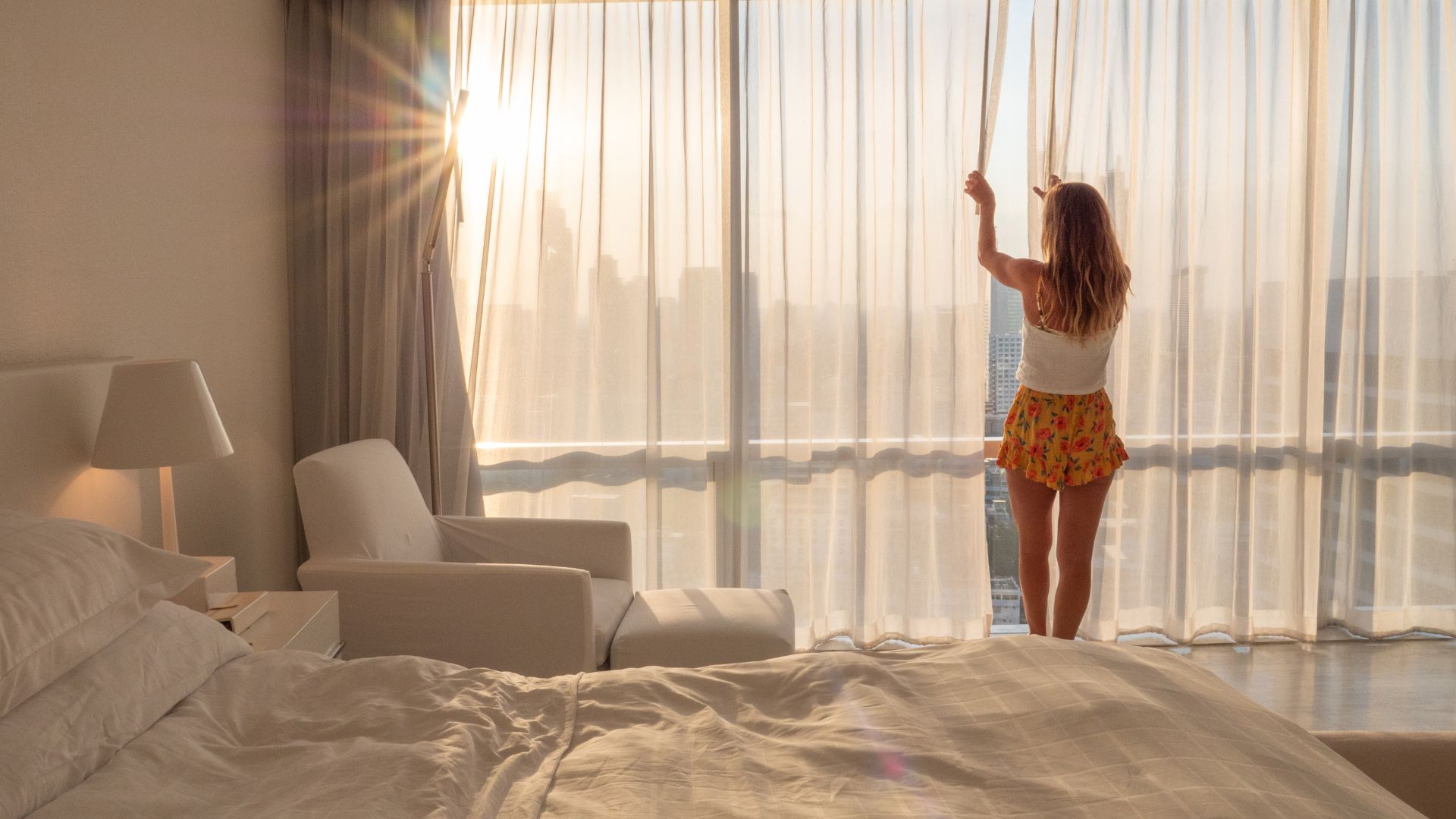
What to do about it: The good news is that we're past the summer solstice, so the nights are getting longer and you should be starting to sleep longer, too.
But if you're still not getting enough sleep, you can look into getting blackout curtains for your bedroom or just a sleep mask to block out unwanted light.
You can also try to increase your melatonin levels by taking time to relax and destress as part of your bedtime routine, getting outside in the sun in the mornings to give your circadian rhythms a jolt, and avoiding screens before bed.
3. Allergies
Summer can mean plenty of pollen in the atmosphere, and if you suffer from allergies then you're much more likely to be affected by insomnia.
Allergens can make your nasal passages swell up, making it harder to breathe through your nose, which can disrupt your sleep and also cause snoring.
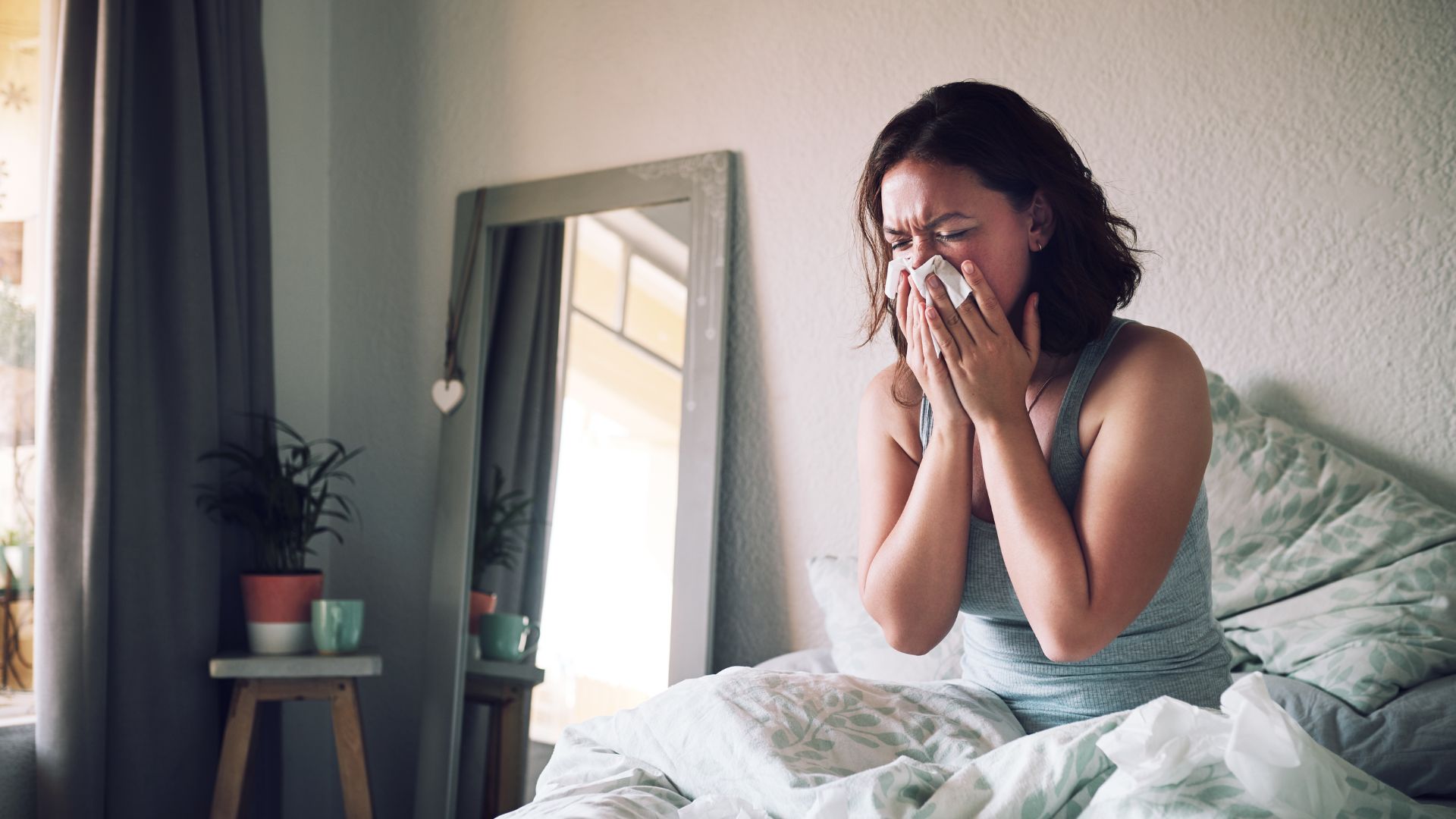
What to do about it: If pollen's getting into your bedroom and keeping you awake, we're afraid that you might have to shut your bedroom window, which might not be a welcome prospect when temperatures are high.
However if you follow an approach such as the caveman method detailed above, that can keep things more comfortable in your bedroom.
If allergies are a big problem for you, ensure you vacuum your bedroom and wash your bedding regularly – although you should avoid drying it outside if possible.
4. More socializing
Warm summer evenings bring with them lots of opportunities to socialize with friends, but that can play havoc with your sleep in more ways than one.
Dr. Chelsea Perry has explained to us that people tend to be more lax with their sleep schedule during the summer, which can throw off your circadian rhythm and make it harder to fall asleep and stay asleep.
Plus, if you're enjoying a balmy evening of drinks with friends, drinking too close to bedtime can affect your sleep. You might fall asleep faster, but all that alcohol can disrupt REM sleep and, as Dr. Leah Kaylor has explained to us, it can cause cortisol to be released in the night, waking you up and making it harder to get back to sleep.

What to do about it: It's never too late to fix your sleep schedule. Dr. Hana Patel of Time4Sleep recommends finding your natural sleeping hours during summer and adjusting your sleep schedule to fit. "Let yourself wake up naturally as much as possible," she suggests.
What do you do if you've had a little too much to drink before bedtime, though? The glib answer is not to drink too much, but should you find yourself having had one (or two) too many, the sensible approach is not to tumble straight into bed when you get home, but to take time to wind down and hydrate properly before you hit the hay.
5. Summer holidays
The thought of a summer getaway can be the thing that keeps you going for the rest of the year, but summer holidays – and travel in general – can be a major cause of insomnia.
Crossing time zones can disrupt your circadian rhythm and in turn lead to jet lag, and if you're getting up early to catch a long and potentially restless flight, that can add to the potential sleepless nights when you're supposed to be having a relaxing time.
Throw in the excitement of being in a new place along with the likelihood of exotic food and plenty of drink, and you're looking at a recipe for insomnia.
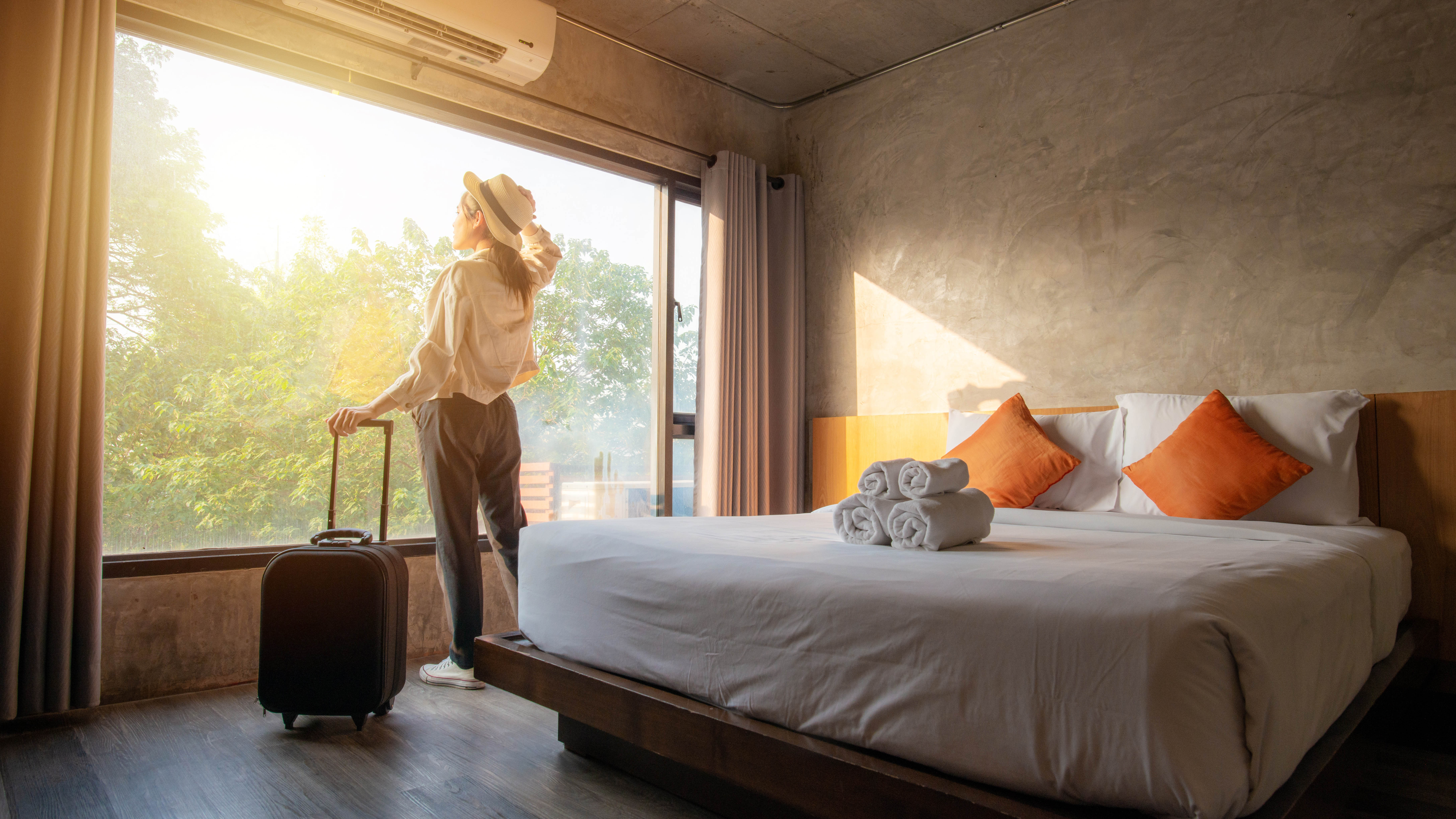
What to do about it: You can reduce the potential impact of travel on your sleep by trying to arrange your flights so that you won't have to get up super-early or stay awake for a lot longer than usual.
Obviously that it's always feasible, but you can make life easier when you arrive by following many of the tips above: try to maintain a regular sleep schedule, keep your bedroom dark and cool, and avoid overdoing it on alcohol.
One final tip from Dr. Donald Grant at Independent Pharmacy is to go easy on spicy food: "Eating spicy foods such as chilli, may raise body temperatures, making it even more difficult to fall asleep in summer," he tells us as part of his tips for sleeping better during summer.







